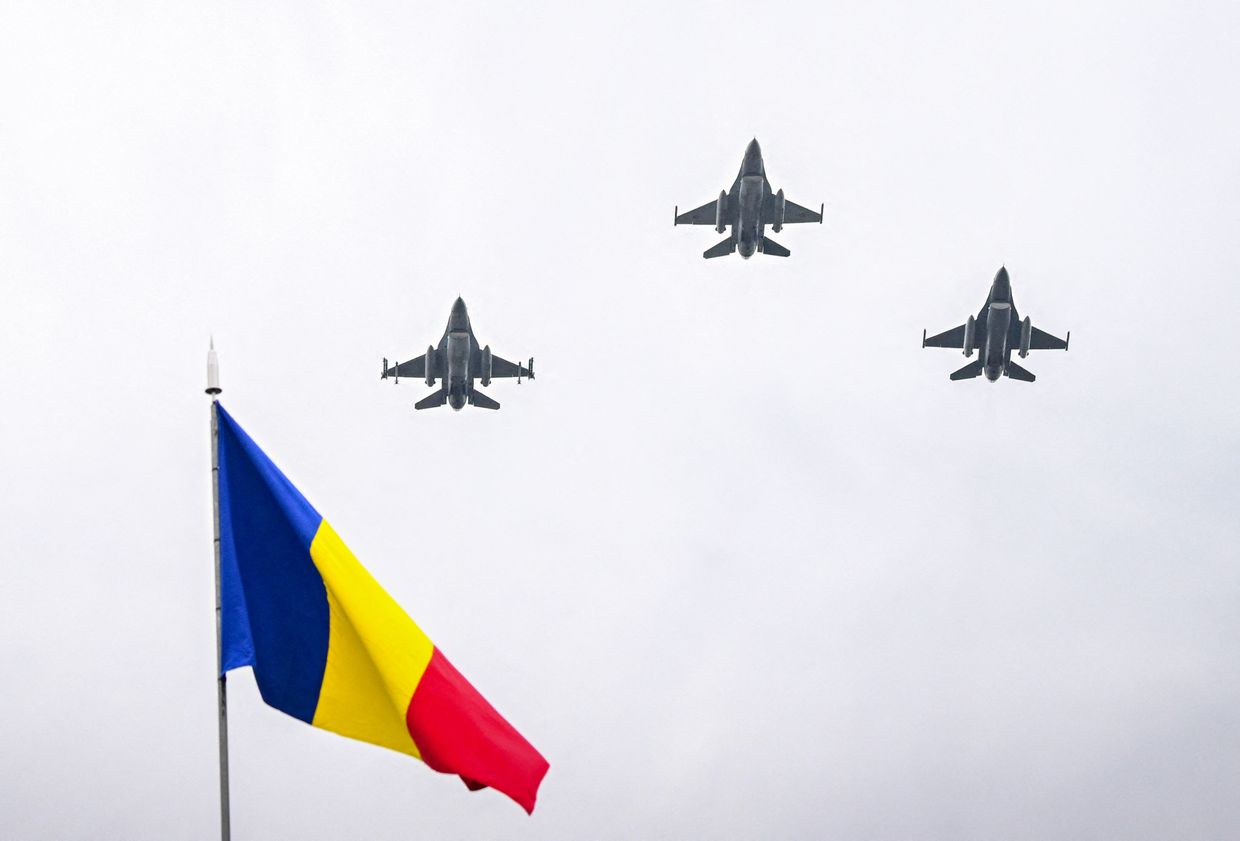Far-right Ukraine aid critic takes surprise lead in Romanian presidential election

Editor's note: The article was updated with the latest election results.
Calin Georgescu, a far-right critic of Romania's pro-NATO and pro-Ukraine policy, is set to enter the presidential run-off vote after a shock result in the first round on Nov. 24.
Georgescu is leading the polls with 22.94% and roughly 99.95% of the vote counted, followed by two pro-Western candidates, Elena Lasconi of the center-right Save Romania Union (USR) at 19.17% and center-left Prime Minister Marcel Ciolacu at 19.15%.
George Simion, the leader of the far-right AUR Alliance, who has been banned from entering Ukraine over "systematic anti-Ukrainian activities," is projected to come in fourth with 13.87%. The second round of the vote is scheduled to take place on Dec. 8.
The surprise outcome signals a possible shift within a country at NATO's eastern frontier that has been staunchly supportive of its Ukrainian neighbors throughout the full-scale war. Romania's head of state has a significant influence in some areas, such as foreign policy.
Georgescu has previously called for an end to Romania's support for Ukraine and lambasted the presence of a NATO missile defense station in Romania as a "shame on diplomacy."
Romania took a decisively pro-Ukraine stance under Ciolacu and outgoing President Klaus Iohannis, providing military, humanitarian, and economic support. The country is a key conduit for Ukraine's agricultural exports and has recently provided Ukraine with a Patriot air defense system.
Romania shares a 610-kilometer (380-mile) border with Ukraine. Russian drone wreckage has been found on the Romanian side of the border on several occasions following Moscow's drone strikes against Ukraine, forcing Bucharest to ramp up security measures in the area.
Georgescu, who has a strong presence on the TikTok social network, was considered a marginal candidate by previous surveys and was not often listed among the top presidential hopefuls.
He ran as an independent candidate while a former member of the AUR. Georgescu left the party in 2022 after being criticized by his fellow party members, who said his overtly pro-Russian and anti-NATO views damaged the party's image.
Georgescu also lauded Romania's World War II-era fascist leader, Ion Antonescu, as a national hero.
He served as a special rapporteur in the Office of the U.N. High Commissioner for Human Rights and worked as an expert in sustainable development and the environment sector.











